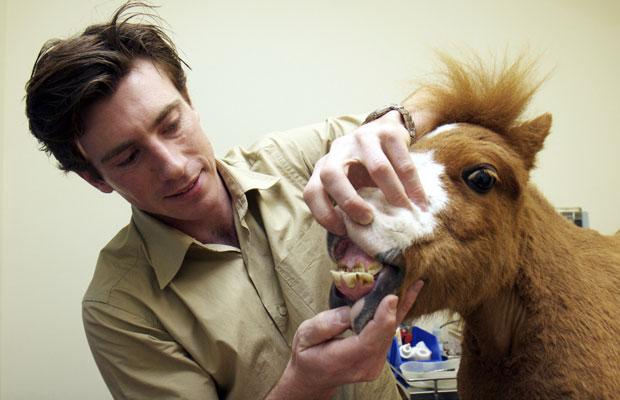The meaning of this saying, according to Wikipedia, is to teach people not to be unappreciative when given a gift. That being said, the other day at a match, a good friend of mine was asking me about steroids. He had a mare, late teens early twenties who was giving him a lot of grief over her weight. He had her on a high protein feed, was giving her decent exercise, had dewormed her, had her turned out on good grass 23 hours a day and couldn’t think of anything else. I have used steroids before on a gelding with a similar problem. It turned out, in the end, my gelding, tragically named Flaco, had a protein uptake issue, which he eventually passed from. My friend was earnest in his desire to help his mare. I asked, “When was the last time she had her teeth done?” He responded with a blank stare and a shrug.
Horse’s teeth should be floated at least once a year to prevent common dental issues. Horses are biologically designed to eat rough, acrid grasses, roots and branches. In domestic situations, horses generally eat softer grasses, hay and concentrated feed. This can cause the teeth to wear inconsistently and sharp points can develop on the rims of the teeth. This can cause cuts on the gums, tongue or at the least cause the jaw to not grind the food properly. Teeth can also become cracked or infected.
Some horses will drop food while eating or be reluctant to eat all together. They may begin bucking, or head-tossing, or running through the bit. Some horses will even begin bucking because of pain in the mouth due to the bit.
Vets and non-vets alike can float a horse’s teeth. A professional will come out, tranquilize the horse, crank its mouth open with a speculum and rasp the sharp points down with either power tools or hand rasps.
In addition to yearly floating, if a horse begins showing behavioral or health issues, don’t forget his mouth.
Complete Guide to Polo

